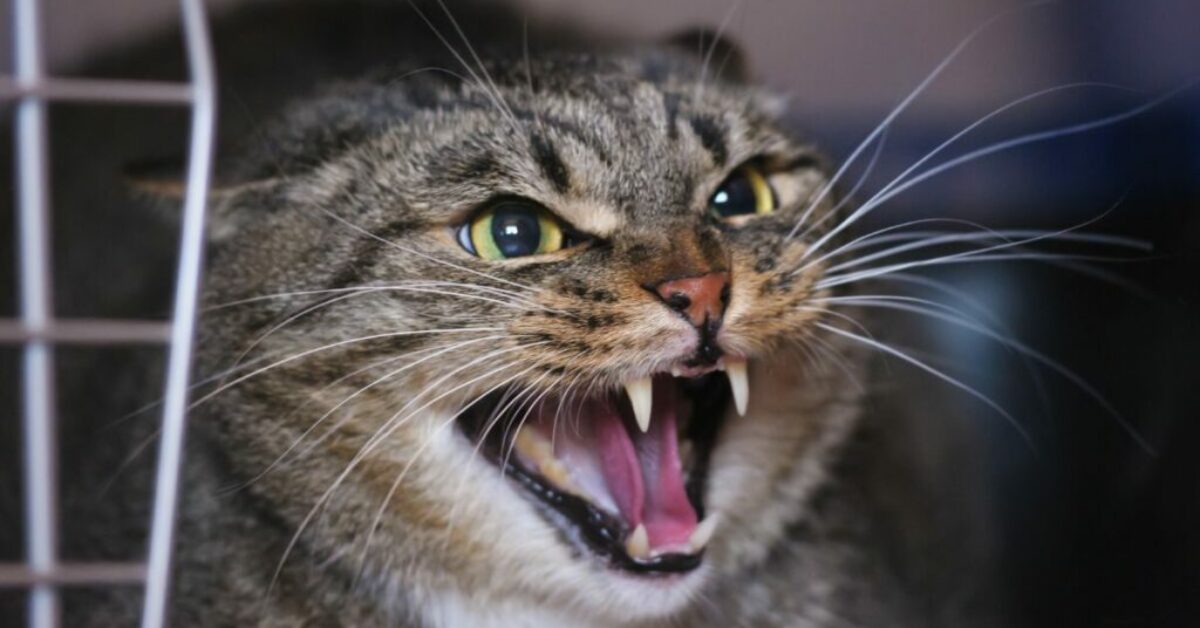How To Become A Cat Behaviorist?
If you love cats and have a passion for understanding and improving their behavior, then becoming a cat behaviorist might be the perfect career for you. In this article, we will explore the steps to becoming a cat behaviorist, the necessary skills, and what being a cat behaviorist entails.
Steps To Becoming A Cat Behaviorist
Becoming a cat behaviorist requires a combination of education, training, and experience. Here are the steps you can take to become a cat behaviorist:
Firstly, it is important to understand that becoming a cat behaviorist is not an easy task. It requires a lot of dedication and hard work. However, if you are passionate about cats and their behavior, it can be a very rewarding career.
- Get an undergraduate degree:
To become a cat behaviorist, you need to have a strong foundation in animal behavior, psychology, biology, or a related field. Therefore, it is important to obtain an undergraduate degree in one of these fields. During your undergraduate studies, it is important to take courses that focus on feline behavior, such as animal learning and cognition, animal welfare, and animal behavior research methods.
- Get a graduate degree:
After obtaining an undergraduate degree, it is recommended to pursue a graduate degree in animal behavior or a related field. This will give you a deeper understanding of animal behavior and will allow you to specialize in feline behavior. During your graduate studies, you can also conduct research on feline behavior, which will give you valuable experience in the field.
- Gain experience:
To become a successful cat behaviorist, it is important to gain hands-on experience working with cats in different settings. This can include working at animal shelters, rescue organizations, or veterinary clinics. This experience will give you a better understanding of feline behavior and will allow you to develop your skills in working with cats.
- Get a certification:
Become a certified cat behaviorist, it is important to obtain a certification from a recognized institution such as the International Association of Animal Behavior Consultants (IAABC) or the Certification Council for Professional Dog Trainers (CCPDT). These certifications will give you credibility in the field and will show that you have the necessary knowledge and skills to work with cats.
- Continually update your knowledge and skills:
The field of animal behavior is constantly evolving, and it is important to stay up-to-date with the latest research and techniques. This can be done by attending workshops, seminars, and conferences in the field, such as those hosted by the American Veterinary Medical Association (AVMA). This will also give you the opportunity to network with other professionals in the field and to exchange ideas and knowledge.
Overall, becoming a cat behaviorist requires a lot of hard work and dedication. However, with the right education, training, and experience, it can be a very rewarding career. If you are passionate about cats and their behavior, then pursuing a career as a cat behaviorist may be the right path for you.
Skills Needed to Become a Cat Behaviorist
In addition to the soft skills mentioned above, there are also some technical skills that can be helpful for a cat behaviorist to have. For example, having a strong understanding of feline anatomy and physiology can be useful when diagnosing and treating behavior issues. Additionally, knowledge of different cat breeds and their specific behaviors can also be beneficial.
Another important aspect of being a cat behaviorist is staying up-to-date with the latest research and developments in the field. This means attending conferences and seminars, reading industry publications, and networking with other professionals in the field. By staying informed and connected, you can continue to improve your skills and provide the best possible care for your feline clients.I
t’s also worth noting that being a cat behaviorist can be emotionally challenging at times. Working with cats who are experiencing behavior issues can be frustrating and stressful, and it’s important to have strategies in place to manage your own emotions and avoid burnout. This might involve things like self-care practices, seeking support from colleagues or a therapist, or taking breaks when needed.
Overall, becoming a cat behaviorist requires a combination of technical expertise, soft skills, and emotional resilience. With dedication and hard work, however, it can be a rewarding and fulfilling career path for those who love working with cats and their owners.
What is a Cat Behaviorist?
As a cat behaviorist, it is important to have a thorough understanding of feline behavior and communication. This includes knowledge of body language, vocalizations, and other methods of communication that cats use to convey their emotions and needs.
One common issue that cat behaviorists address is inappropriate urination or defecation outside of the litter box. This can be a frustrating problem for cat owners, but a behaviorist can help determine the root cause of the behavior and create a plan to address it.
Another behavior that cat behaviorists often work with is aggression. This can include aggression towards other cats in the household, as well as aggression towards humans. A behaviorist can help identify the triggers for the aggression and develop a plan to modify the behavior.
Behaviorists can also help with issues such as excessive meowing, scratching, and destructive behavior. By understanding the underlying causes of these behaviors, behaviorists can create a plan that addresses the root cause of the behavior, rather than just treating the symptoms.
It is important to note that while cat behaviorists can be incredibly helpful in addressing behavioral issues, they are not a substitute for veterinary care. If your cat is experiencing any physical symptoms, it is important to consult with a veterinarian to rule out any underlying medical conditions.
Overall, being a cat behaviorist requires a deep love and understanding of cats, as well as a dedication to helping them live happy and healthy lives. By working with a behaviorist, cat owners can address behavioral issues and create a strong bond with their feline companions.
The Benefits of Working as A Cat Behaviorist
Becoming a cat behaviorist can be a fulfilling and rewarding career choice for those with a passion for cats and animal behavior. According to ZipRecruiter, the average salary in the United States is around $52,566/year as of June 2024. Here are some benefits of working as a cat behaviorist:
- The ability to help cats improve their behavior and live happier lives
- The opportunity to work with many different types of cats and clients from diverse backgrounds
- The chance to continually learn and grow as a professional in a dynamic field
- The potential to make a positive impact on the lives of both cats and their human owners
While becoming a cat behaviorist requires hard work and dedication, the benefits of doing so can be immensely rewarding for both you and the cats you work with.
As a cat behaviorist, you will have the opportunity to work with cats of all ages, breeds, and temperaments. You may work with cats who are experiencing behavioral issues such as aggression, anxiety, or litter box problems. You will have the ability to assess each cat’s unique situation and develop a personalized plan to help them overcome their issues and improve their quality of life.
Working as a cat behaviorist can also provide you with the opportunity to work with a wide range of clients from diverse backgrounds. You may work with cat owners who are experiencing challenges with their cats and are seeking guidance and support. You may also work with animal shelters and rescue organizations to help cats who are in need of behavior modification in order to increase their chances of being adopted into loving homes.
One of the most exciting aspects of working as a cat behaviorist is the chance to continually learn and grow as a professional. As new research and techniques are developed, you will have the opportunity to stay up-to-date with the latest trends and developments in the field. You may also have the opportunity to attend conferences and workshops to expand your knowledge and skills.
Finally, working as a cat behaviorist can be incredibly rewarding as you have the potential to make a positive impact on the lives of both cats and human owners. By helping cats overcome behavioral issues, you can improve their quality of life and strengthen the bond between cats and their owners. This can lead to a happier and healthier life for both the cat and their owner.
Becoming a cat behaviorist requires dedication, education, and experience in both cat behavior and working with cats. With the right combination of skills and knowledge, you can create a fulfilling career as a cat behaviorist, helping cats live happier and healthier lives while making a positive impact on their human owners.




